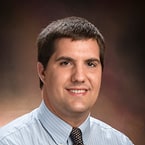AACR-AstraZeneca Career Development Award for Physician-Scientists, in honor of José Baselga
The AACR-AstraZeneca Career Development Award for Physician-Scientists, in Honor of José Baselga has been established to honor the life and legacy of Dr. José Baselga, who was a scientific leader and supportive mentor to an entire generation of physician-scientists. The intent of this program is to encourage and support junior physician-scientists to conduct research and bolster the development of innovative targeted therapeutics.
2024 Grantee

Research
Progression and irreversibility of cancer-related lymphedema, a major long-term side effect of cancer treatment, can be primarily attributed to fibrosis. Downregulation of peroxisome proliferator-activated receptor (PPAR) signalling is a hallmark pathology in this condition. In this research, Dr. Kwan plans to uncover the critical genes and cell types facilitating the development of fibrosis via the PPAR signaling pathway, and to identify a new treatment strategy to target mediators of fibrosis in cancer-related lymphedema. Treating this condition can enhance the therapeutic ratio of cancer treatments by reducing toxicity and improving the tolerability of cancer treatment.
Biography
Dr. Kwan received her medical degree from Queen’s University and completed her doctorate and radiation oncology residency training at the University of Toronto. She was also a scholar of the Royal College Clinician Investigator Program (CIP) and Strategic Training in Transdisciplinary Radiation Science for the 21st Century (STARS21) Program. She is currently a radiation oncologist-clinician scientist at the Princess Margaret Cancer Centre and an assistant professor in the Department of Radiation Oncology and the Institute of Medical Science at the University of Toronto. Her research program focuses on novel biomarkers and therapeutics for side effects of cancer treatment.
Acknowledgment of Support
“I am honored to receive the AACR-AstraZeneca Career Development Award for Physician-Scientists, in Honor of José Baselga. This is a significant milestone in my early career as a physician-scientist. The award will allow us to reach our full potential in minimizing side effects of cancer treatments for our patients.”
2023 grantee

Research
Glypican 2 (GPC2) is an oncoprotein found on neuroblastoma, but not normal, tissues. The Bosse laboratory has developed human GPC2 CAR T cells that are being tested in a first-in-human Phase 1 clinical trial. In parallel, to define the role of the tumor immune microenvironment in GPC2 CAR efficacy, they developed paired-murine GPC2 CARs and performed studies in immunocompetent neuroblastoma allograft models. Results of these studies suggest that limited CAR T cell tumor trafficking and enhanced tumor infiltration of immunosuppressive myeloid-derived suppressor cells (MDSCs) may be mechanisms of GPC2 CAR immune escape. To explore these putative mechanisms further, Dr. Bosse is set to: 1) characterize how MDSCs modulate GPC2 CAR T cells, 2) develop CXCR2-armored GPC2 CARs to enhance CAR T cell tumor trafficking and circumvent MDSC-mediated immune suppression, and 3) utilize serial blood samples from their Phase 1 trial to define the relationship between MDSCs and GPC2 CAR T cell persistence and efficacy in patients with neuroblastoma.
Biography
Dr. Bosse graduated summa cum laude with honors from Bowdoin College, and completed his medical degree and training at University of Pennsylvania and Children’s Hospital of Philadelphia (CHOP). He began studying neuroblastoma as a Howard Hughes Medical Institute Fellow during medical school. He is currently an Assistant Professor of Pediatrics at the Perelman School of Medicine at the University of Pennsylvania and CHOP. Dr. Bosse’s laboratory at CHOP is currently focused on using an integrated genomic and functional approach to identify novel cell surface molecules for immunotherapeutic targeting in neuroblastoma and other pediatric cancers.
Acknowledgement of Support
“Receiving a 2023 AACR-AstraZeneca Career Development Award for Physician Scientists, in Honor of José Baselga, is a tremendous honor and will allow us to define mechanisms of glypican 2 CAR T cell immune escape to enable development of more potent immunotherapies for children with cancer.”
2022 Grantee

Research
Macrophages are often the predominant infiltrating immune cell in tumors, yet their potential to act as effectors of cancer immunotherapy has been underappreciated. The CD47/SIRPa interaction is a macrophage immune checkpoint, and therapies that block this interaction demonstrate the tremendous potential of macrophages to attack cancer. However, the receptors and signaling pathways that regulate macrophage activation against cancer remain poorly understood relative to other immune cell types. In this study, Dr. Weiskopf takes an unbiased approach to identify novel immune checkpoints that regulate macrophages in the tumor microenvironment. Moreover, he will employ a multi-pronged strategy to discover new small molecules and biologics that activate macrophages to attack cancer.
Biography
Kipp Weiskopf, MD, PhD earned his medical and graduate degrees at Stanford University. As a member of Irving Weissman’s laboratory, he characterized the CD47/SIRPa axis as a macrophage immune checkpoint. He previously trained at Brigham and Women’s Hospital and is board-certified in Internal Medicine. He is currently a Valhalla Fellow at Whitehead Institute for Biomedical Research, where he leads a research laboratory focused on macrophage-directed therapies for cancer. He is concurrently appointed as a medical oncology fellow at Dana-Farber Cancer Institute. He is an inventor on over 15 U.S. patents and is a cofounder of ALX Oncology.
Acknowledgment of Support
Dr. Baselga was a champion of cancer research and a fierce advocate for cancer patients. It is a tremendous honor to be supported by this award, which memorializes Dr. Baselga’s lifetime of contributions to oncology. Drawing inspiration from his example, I strive for our research to be transformative for patients.
